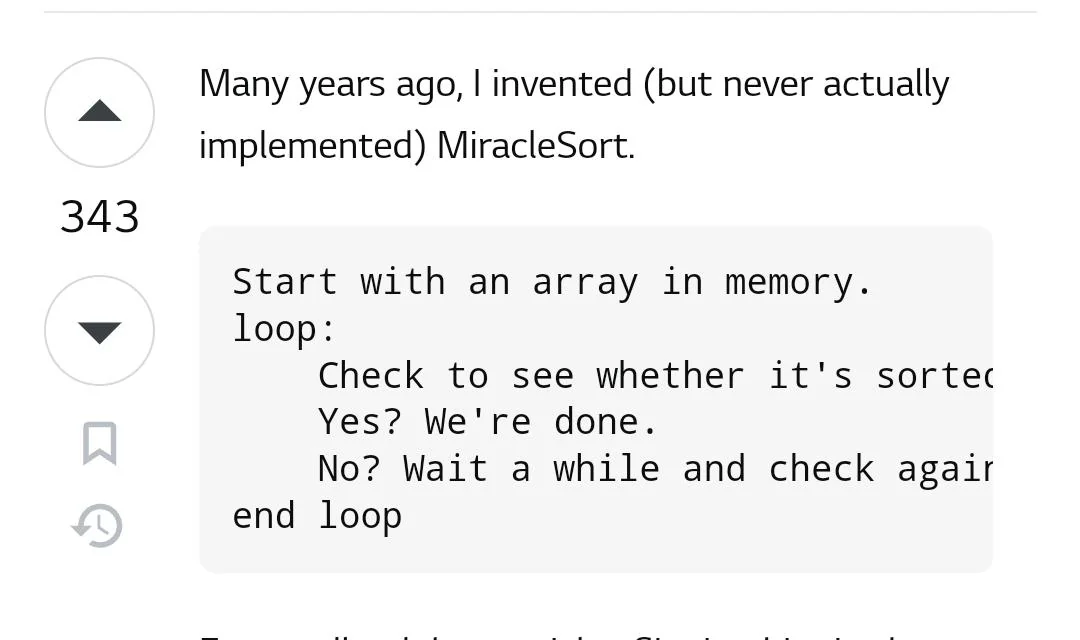this post was submitted on 08 Nov 2024
751 points (98.2% liked)
Programmer Humor
26148 readers
1117 users here now
Welcome to Programmer Humor!
This is a place where you can post jokes, memes, humor, etc. related to programming!
For sharing awful code theres also Programming Horror.
Rules
- Keep content in english
- No advertisements
- Posts must be related to programming or programmer topics
founded 2 years ago
MODERATORS
you are viewing a single comment's thread
view the rest of the comments
view the rest of the comments

Reminds me of quantum-bogosort: randomize the list; check if it is sorted. If it is, you're done; otherwise, destroy this universe.
Guaranteed to sort the list in nearly instantaneous time and with absolutely no downsides that are capable of objecting.
You still have to check that it's sorted, which is O(n).
We'll also assume that destroying the universe takes constant time.
In the universe where the list is sorted, it doesn't actually matter how long the destruction takes!
It actually takes a few trillion years but its fine because we just stop considering the "failed" universes because they will be gone soon™ anyway.
Eh, trillion is a constant
amortized O(0)
Well yeah just delete the pointer to it!
universe.take()Except you missed a bug in the "check if it's sorted" code and it ends up destroying every universe.
There's a bug in it now, that's why we're still here.
Creation is easy, assuming the many-worlds interpretation of quantum mechanics!
Instead of destroying the universe, can we destroy prior, failed shuffle/check iterations to retain o(1)? Then we wouldn't have to reload all of creation into RAM.
Delete prior iterations of the loop in the same timeline? I'm not sure there's anything in quantum mechanics to permit that...
What library are you using for that?
is-sorted and a handful of about 300 other npm packages. Cloning the repo and installing takes about 16 hours but after that you're pretty much good for the rest of eternity
that explains why it took god 7 days to make the universe
We still suffer from the runtime errors that could've been caught at compilation time.
Anti Commercial-AI license
In Python you just use
Since randomizing the list increases entropy, it could theoretically make your cpu cooler just before it destroys the universe.